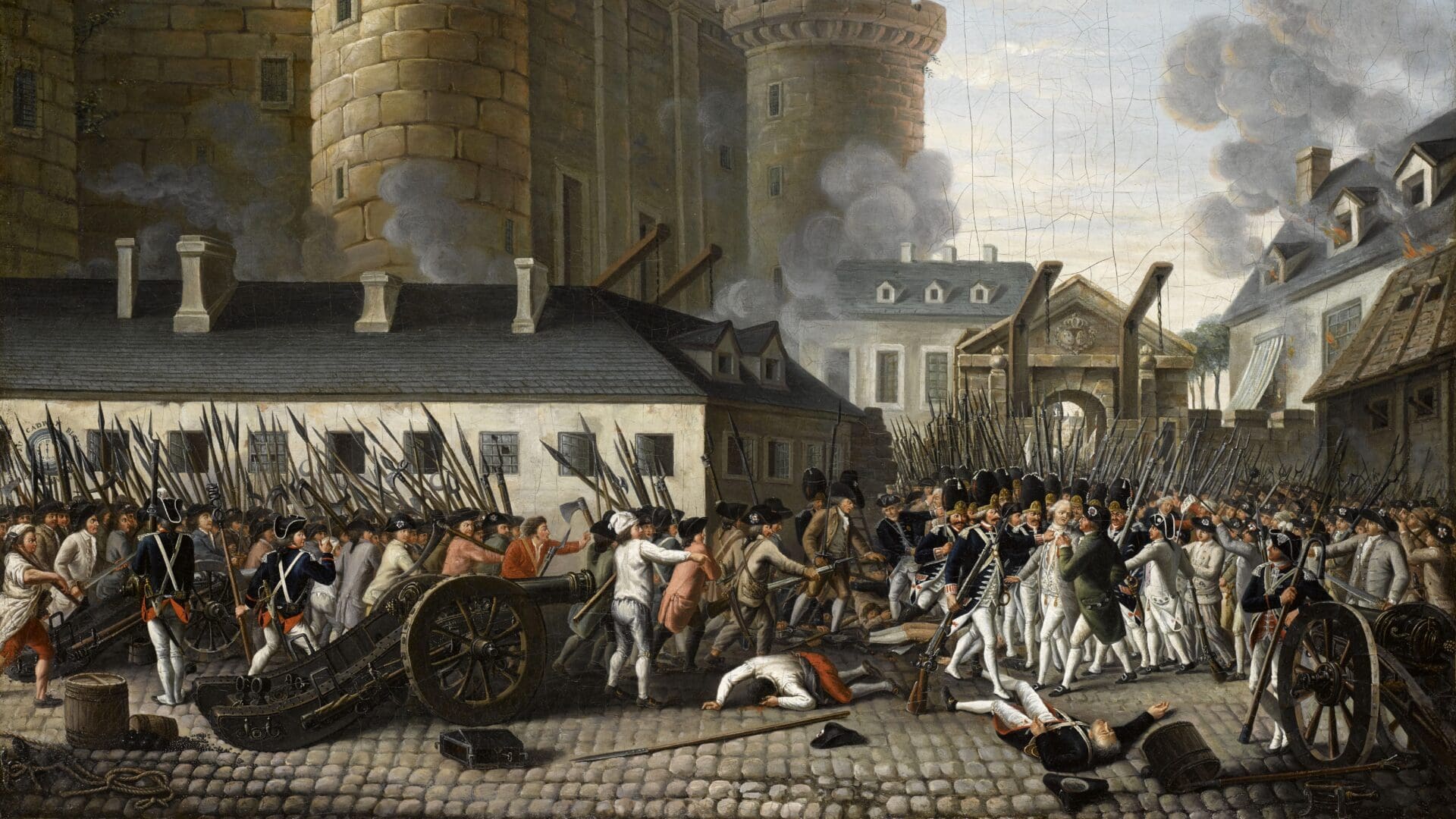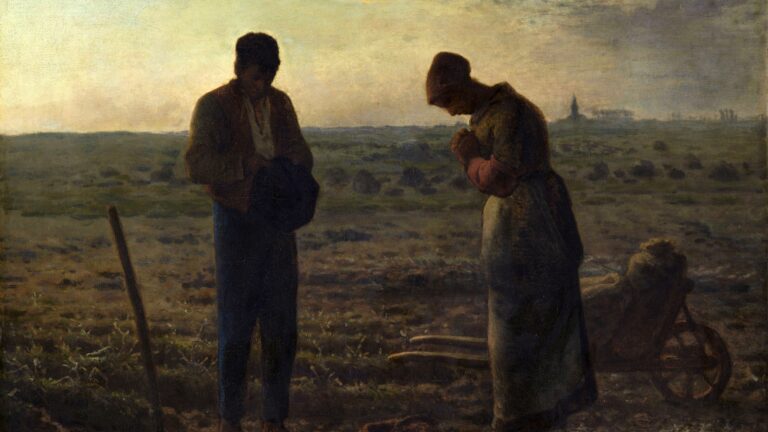In Part II of our series of Edmund Burke’s writings on democracy, we are looking at one of his most well-known works, Reflections on the Revolution in France. As evident from its title, it is a critique of the 1789 French Revolution, and was written as a letter to one of Burke’s friends in France. However, the pamphlet also includes a lengthy criticism of a specific speech, delivered by Richard Price, a nonconformist pastor and philosopher.
The Elective Monarchy, Which Was Not
Doctor Price, as Burke refers to him, used a celebratory event, the anniversary of the Glorious Revolution, to laud the French Revolution, and to try and develop the ideas of the British rebellion into something more radical and democratic. According to Price, monarchs gain their legitimacy by popular election, making ‘the people’ the ultimate source of sovereignty.
However, as Burke correctly points out, the Glorious Revolution was not about making the United Kingdom an elective monarchy. The Parliament did not select a new ruler, based on their free will, but rather replaced the reigning king, James II, with his daughter’s husband, William of Orange. Furthermore, the 1701 Act of Settlement, designated the Stuart heiress, Anne’s Protestant descendants as the heirs to the throne. Therefore, Burke argues, the revolution in fact stabilised the hereditary kingdom by preserving the throne for princes from the bloodline of James, the very king it ousted. As Burke points out, the legal document of this parliamentary session spoke about Kings, given to England by God, rather than declaring England finally gained the right to elect its own rulers. Instead, Parliament declared their allegiance to the King without any conditions, such as making the kingdom elective.
Burke also outlines that ousting King James was not due to him being perceived as negligent, nor about his ways being simply disliked, but was rather legitimised by
his alleged attempt to uproot the order of the state and the state religion.
Therefore, for Burke, what happened was about correction, rather than revolutionary ideas. As he also wrote: ‘The Revolution was made to preserve our ancient indisputable laws and liberties, and that ancient constitution of government which is our only security for law and liberty.’
While Price argues that the only legitimate monarchy on earth is the British, due to its supposedly ‘revolutionary’ and elective roots, Burke points out that these claims are in fact untrue. He warns Price about the pitfalls of his logic: if only elected kings are to be accepted, then no British ruler, except William of Orange, is legitimate. Burke uses this logical fallacy of the nonconformist preacher to point out how dangerous conclusions radical ideas can lead to. According to him, Price’s ideas are actually more descriptive of the French Revolution than the Glorious Revolution. Burke also shows that this is a slippery-slope-type thinking, which would eventually ruin the legitimacy of the British monarchy entirely. Burke suggests that maybe this is the very aim of Price, even if he is not ready to admit it, maybe not even to himself.
Source of Ancient Liberty: the Bill of Rights and the Magna Charta
For Burke, the abstract ideas of freedom take a backseat to stability, tradition, and ancient laws, both regarding the legal and the political system. He does not only repeatedly point out that the Glorious Revolution was an extraordinary event, which changed nothing regarding the form of government, but he also shows that the very same parliamentary session and set of laws (for instance the Bill of Rights and the Act of Settlement), which reaffirmed the hereditary character of the British monarchy, were the set of legal acts that also strengthened the rights and freedoms of the people. In this sense, Burke reasons, if Price and other radicals question the hereditary monarchy,
they also destroy the basis of their very rights and freedoms,
the rights and freedoms they claim to defend. This argumentation also demonstrates that for Burke, the source of rights is not nature, but rather legal documents and tradition, especially the Magna Charta and the Bill of Rights. While he admits that there are natural rights, like right to life or property, Burke also argues that it is safer and sounder to build an argument about rights and freedoms on positive legal documents. He finds it especially legitimate when these were ancient ones, like the Magna Charta. He points out that when this act was issued, the estates and the King tried to tie it to a supposedly even older charter, demonstrating the importance of ancient legal roots. Burke thus says that freedom is an inheritance from our forefathers. Just like the throne, freedom is hereditary too, and who undermines one, undermines the other as well. While he admits to the existence of natural rights, he also says that ‘acting in presence of our forefathers’ makes lawmaking more sane and secure. He also argues that people who contribute more to society should have more political rights.
The French Revolution
Burke criticised the French Revolution itself from multiple angles, accusing it of being tyrannical, disruptive, as well as an enemy of religion and property. In his view, the French Revolution must not be celebrated, just because it is about freedom. He likens it to the event of a madman freeing himself from his prison cell, which is also not celebrated. Burke also criticises the French Revolution for uprooting the balance between the estates, giving the third estate the most power, which makes a ‘gruelling constitution’ in his view. Furthermore, these people were not used to political power, thus their taking over led to instability.
Burke also uses the criticism of the French Revolution to argue directly against democracy. According to him, pure democracy can lead to just as much oppression of the minority as absolute monarchy, which is demonstrated by the French example. However, he admits that democracy can work as well, as seen in ancient Greece. Therefore, for Burke,
it is best not to judge forms of government based on abstract ideas, but rather on a practical basis.
Burke also highlights that even in the supposedly full democracy created by the French Revolution there is restricted suffrage, based on census taxes. Therefore, he argues, their electoral system contradicts their core belief in equality and democracy. Thus, Burke does not only criticise the French democracy, but also shows that it is, in fact, not even genuinely democratic. He concludes that since suffrage is restricted, the King’s power is limited, and there is no Senate or upper house, all power is concentrated in the hands of the unicameral legislature. This demonstrates another point of Burke, namely that there is no such thing as equality, and whenever there is an attempt to create equality, it will only distort and disrupt the whole society.
Burke concludes that England should not try to move toward a more radical and democratic system, but rather stick to its traditional form of government. In his words:
‘The people of England will not mimic untried fashions.’








